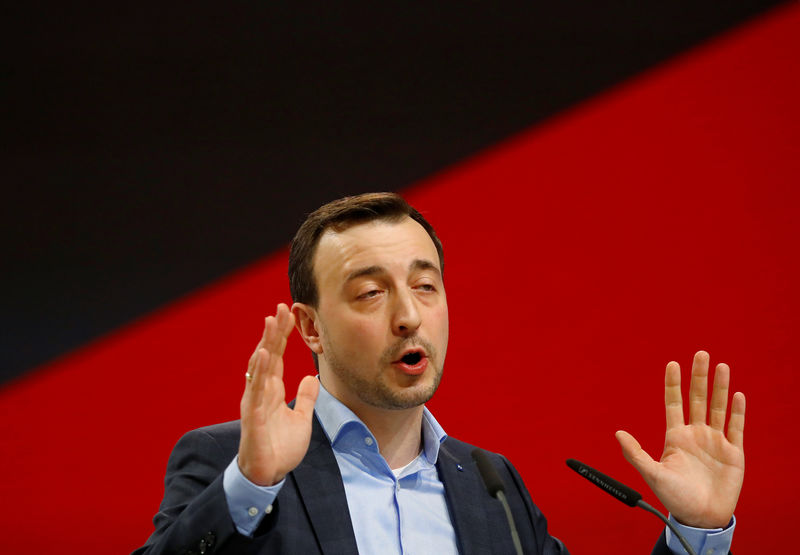BERLIN (Reuters) - Chancellor Angela Merkel's Christian Democrats want to get on with implementing their coalition deal with Germany's Social Democrats (SPD) but working with them won't get any easier after they elected new leftist leaders, a senior CDU official said.
At a party conference on Friday, SPD delegates appointed two critics of the coalition to lead their party jointly after months of turmoil and dismal performances in regional and European elections.
"We honor agreements and we want to serve and shape this country," Christian Democrat (CDU) Secretary General Paul Ziemiak told a news conference on Monday, with reference to the existing coalition deal.
"On the question of how we work with the SPD, I don't think it will get easier, especially if I look our dealings with each other, or at the party's leftward turn, if I look at how people in the party talk about each other," he added.
The parties will decide in the next few weeks whether their centrist alliance has a future after the SPD chose a more leftist leadership duo, who have demanded new policies on climate, investment and the minimum wage.
"There are no negotiations on the coalition agreement," Ziemiak said.
"So it's not the case that we are going in there with new proposals. What is important now is to look closely at the coalition agreement and see what else we need to get out of it."
Budget policy is a point of contention for the coalition. Many conservatives are committed to achieving a balanced budget without issuing new debt.
But Norbert Walter-Borjans, one of the new SPD co-leaders, said on Friday that a poisoned environment, dilapidated infrastructure and technological regression "would be a far worse debt to hand on to the next generation."
Addressing the balanced budget issue, Ziemiak countered: "If the state, with the revenues it's been making, hasn't managed in the past 10 years then how is it to do so if interest rates start rising or we have lower tax revenues?"
A collapse of the 18-month-old alliance could lead to a minority government or snap election, threatening instability in Europe's biggest economy at a time when many fear the strength of the far-right Alternative for Germany (AfD).

Merkel, who has led Germany for the past 14 years, has said she will not stand for a fifth term.